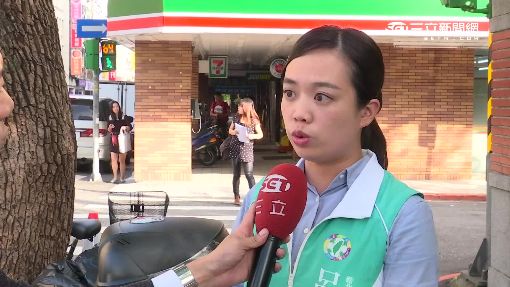by M. Bob Kao
語言:
English
Photo Credit: 康彥攝/ETToday
DPP LEGISLATOR Lu Sun-ling (呂孫綾) was ridiculed online last week for what was reported by the mainstream media as her confusion between the Ministry of National Defense (MND) with the National Security Bureau (NSB) in the Legislative Yuan. During her questioning session with NSB Director-General Yang Kuo-chiang (楊國強), her inquiries about the illegal military police search and seizure incident was repeatedly met with denials of jurisdiction, as the military police is under the MND and not the NSB.
The media took Yang’s side and due to the way the story was framed, netizens immediately raised their pitchforks against her. Though Lu explained her reasoning on Facebook later—saying she understood the difference between the MND and NSB but believed NSB also has the power over this matter—it was too little too late. That Lu was unable to explain this in the Legislative Yuan to reign in Yang’s derisive attitude and the fact that her tone on Facebook was needlessly defiant provided more ammunition for online commenters.
Setting aside the emotional response, however, does Lu’s explanation hold water legally? Somewhat. The National Security Bureau Organic Act (國家安全局組織法) and the National Intelligence Services Act (國家情報工作法) both stipulate that the NSB has the power to guide, coordinate, and support the MND Military Police Command, among other units, on national security matters, as Lu explained on Facebook. However, the language does not appear to be mandatory and does not make the director-general of the NSB at the top of the chain of command. In other words, according to the plain language of the law, if the MND did not proactively seek the NSB’s assistance, and if no other agencies were involved, there is no reason to believe that the NSB would be privy to the case. Nonetheless, the national security element of the law was likely met in this case because the military police initially justified their actions by the purported classified nature of the documents involved. All in all, while not strong, Lu has a plausible and not entirely ridiculous legal argument for asking Yang about the incident.
 Lu posing during her campaign with an image of her campaign mascot. Photo credit: Liberty Times
Lu posing during her campaign with an image of her campaign mascot. Photo credit: Liberty Times
Lu should have made this legal argument during the Legislative Yuan committee session and directly confronted Yang on why he did not care enough to proactively seek out information, since the law says he could, on a case that has been so important to much of the Taiwanese population. She could have then used this opportunity to embarrass Yang by asking if he knew the relevant provisions of the National Security Bureau Organic Act and the National Intelligence Services Act that give him this power, which he most likely would not have known verbatim. Her not following this line of attack is further evidence supporting the accusation that she was unprepared—she either did not know the legal basis of her questioning until she had to defend herself on Facebook later, meaning she did not have the text or even the citations of the laws on hand, or she was caught off guard by Yang’s answer and unable to think quickly on her feet to take control of the session even when armed with the information.
What adds further fuel to netizens’ ire is that her father was a politician and the not inaccurate belief that she was only able to run for and win her seat due to his connections. And there is no doubt that her being young, particularly a young woman, played a role in the backlash. It is difficult to imagine a young male legislator making the same mistake being subjected to the kind of language being directed at her online.
On the flip side, her young age has also attracted defenders, with many online commenters excusing her being toyed by Yang as a result of her age. While this may take some of the heat off of her personally, it is a dangerous direction to take. If young politicians want to be taken seriously, being young cannot be an excuse for making mistakes. In any case, Lu is already 28. By that age, my friends and I were cross-examining wily cops in court and negotiating with slimy opposing counsels. Activists far younger have done far more for years. If we made any mistakes, it was due to our lack of preparedness, not our age. Likewise, Lu finds herself in this position not because of her age but because of her lack of preparation—and perhaps arrogance—and this is the narrative that needs to be perpetuated so young people who are dedicated, prepared, politically conscious, critical, and self-aware are not summarily discredited.
 Lu being interviewed by SET. Photo credit: SET
Lu being interviewed by SET. Photo credit: SET
In the end, Lu made both political and legal mistakes in the Legislative Yuan. Though the legal mistake is not as obvious as generally thought, she completely lost the political battle when her Facebook response showed how out of touch she is with public opinion. She should have apologized forthwith and moved on. For a second-generation politician, this is the more disappointing blunder.


 Lu posing during her campaign with an image of her campaign mascot. Photo credit: Liberty Times
Lu posing during her campaign with an image of her campaign mascot. Photo credit: Liberty Times Lu being interviewed by SET. Photo credit: SET
Lu being interviewed by SET. Photo credit: SET